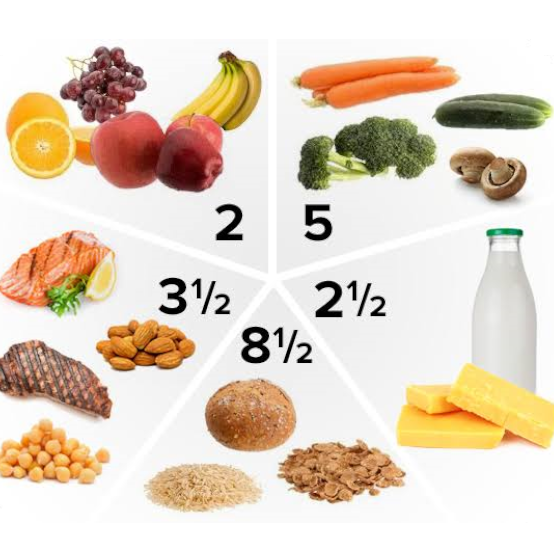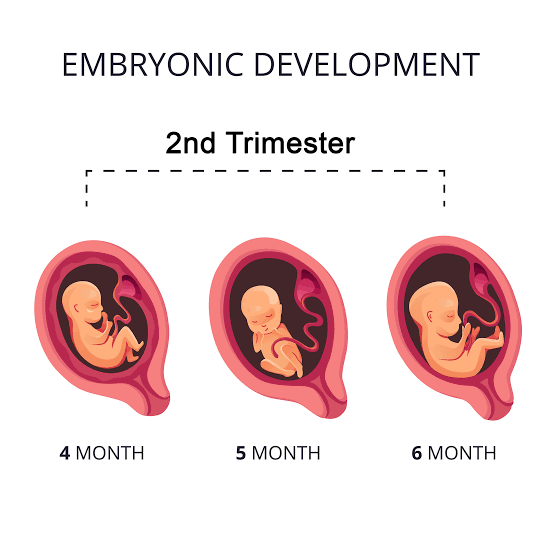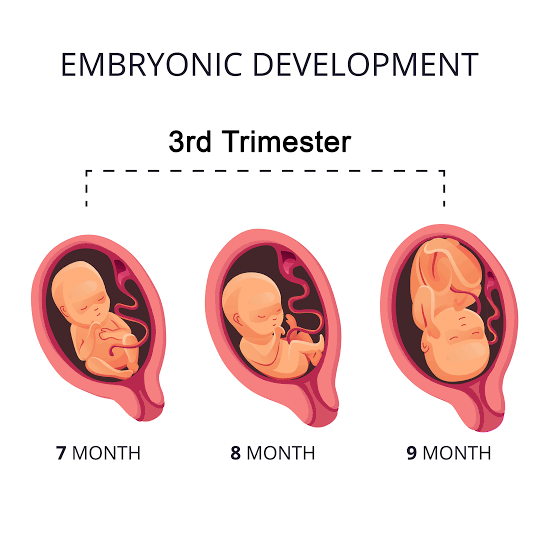Congratulations on your pregnancy! A healthy diet during this precious time is crucial for both you and your baby’s well-being. It may come as a surprise to many that you don’t actually require any extra calories during the first trimester and even during the second & third trimesters, the daily calorie requirement increases by only 340 Cal & 450 Cal respectively. This much requirement can really be covered by a glass of skimmed milk and half a sandwich in a day.
Rather you have to choose your diet right in pregnancy. Food should be easily digestible, low fat and sugar.
You should eat home cooked fresh and balanced diet. Stale refrigerated and outside food should be avoided.
You should take Small frequent meals. Food should be divided into 5 portions, 3 major meals and healthy snacks in between.
There can’t be a one for all diet chart. Diet has to be individualized according to your pre pregnancy weight, medical issues and preferences. We are going to discuss the basic principles, which remain the same.
Also remember that it is wiser & healthier to choose locally grown, fresh seasonal fruits & vegetables rather than the exotic, imported varieties available in the superstores.
Whole fruit is better than juice as the roughage content of fruits is very important to take care of bowel movements and also prevents rise in blood sugar levels.
The daily requirement of starchy foods & grains varies from 5-7 servings per day
These include the foods made from wheat, rice, oats, cornmeal, barley & other grains. So they are used mostly in the form of Breads, Chapatis, pasta, cereals etc.
These should form the base of your meals as they are filling, rich in fibre & nutrients including complex carbohydrates, Vit.B complex group & various minerals like Iron, Selenium, Magnesium etc.
Make sure that at least half of your daily consumption of food grains should be composed of whole grains
You need at least 3 servings of protein rich foods in a day to ensure your good health and optimum growth of the baby.
Proteins function as building blocks for bones, muscles, cartilage, skin & blood apart from being an important part of most enzymes and hormones.
When consuming meat, make sure that you don’t use excessive oil/fats for cooking it, and also remember that it is important to cook it thoroughly to minimize the risk of any infection.
You need to consume at least 3-4 servings of dairy products in a day.
- These include milk, yogurt, cheese, fortified soy milk etc.
- Dairy products are necessary to ensure strong bones for you as well as the baby.
- It is better to choose low-fat or non-fat dairy products rather than the full-cream versions.
- Women who are lactose intolerant can opt for the lactose-free products available easily in the market nowadays.
- 1 serving constitutes: – 1 cup of milk or yoghurt OR.
-1.5 oz of natural cheese OR. – 2 oz of processed cheese.
For a healthy pregnancy, remember that your fluid intake should be at least 2.5 to 3 liters of liquid in a day.















